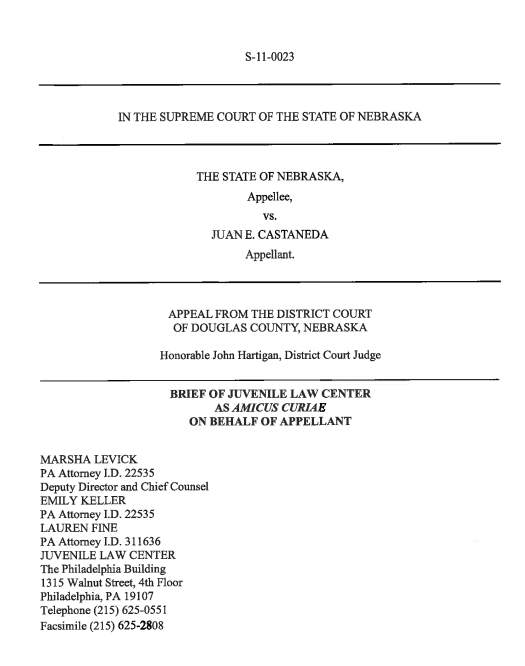
Summary of Argument
In Miller v. Alabama, 567 U.S. ___, 132 S. Ct. 2455, 183 L.Ed.2d 407 (2012) the United States Supreme Court held that the mandatory imposition of life without parole sentences on juvenile offenders is unconstitutional. Under current Nebraska law, any juvenile convicted of first degree murder must be sentenced to life imprisonment without the possibility of parole. NEB. REV. STAT. § 29-2520. The statute governing first degree murder fails to account for consideration of the different levels of culpability associated with participation as an aider/abettor, versus as the actual shooter. Additionally, the sentencing judge has no discretion to take the offender’s youth or other circumstances into account, and the only available sentence does not provide the constitutionally mandated possibility of parole for a juvenile who did not commit homicide. See Graham v. Florida, 130 S. Ct. 2011 (2010) (holding that a life without parole sentence can never be imposed upon a juvenile when there is no finding that the juvenile either killed or intended to kill). The possibility of commutation of the life imprisonment sentence does not alter the unconstitutionality of the punishment as it neither allows the court to impose an individualized sentence (as required by Miller), nor does it provide a meaningful opportunity for release (as required by Graham, 130 S. Ct. at 2030). Accordingly, Appellant Juan Castañeda’s sentence must be vacated and a new constitutional sentence imposed.